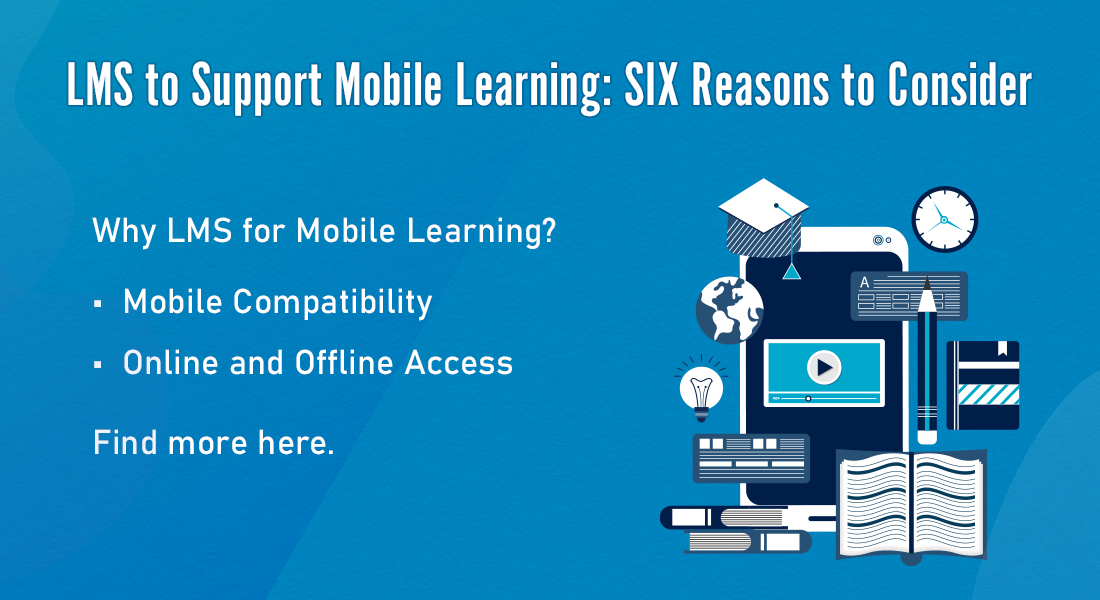5 Best Practices to Select the Best Learning Platform for Training

Let’s begin with the basics – a Learning Management System (LMS) is a software application that lets companies and organizations to administer, disseminate, track and report on training programs. We live in a generation where the terms eLearning and online training have become tantamount with a culture of learning. Let’s begin with the basics – a Learning Management System (LMS) is a software application that lets companies and organizations to administer, disseminate, track and report on training programs. We live in a generation where the terms eLearning and online training have become tantamount with a culture of learning.
→ Download Now: State of Learning (Now and Beyond) [eBook]
Before finalizing on the LMS, consider three major aspects:
1. Will the LMS enable the user to organize, and schedule easily?
2. Will the LMS be able to distribute training to the right people at the right time?
3. Will the LMS be able to easily report on learning activity to the right stakeholders?
Many profitable organizations have embraced an LMS to guarantee course completion, or to increase attendance or to ensure training is taken up and to help employees maintain and improve their skill sets. Are you looking to invest in one? Then here’s what to consider In this blog, I’ll share 5 tips that will prove useful to you to pick the best LMS, according to your company’s needs. From scalability to usability, I will delve into the various aspects that are to be considered when searching for your best LMS.
1. Define Requirements for Corporate Training
Before you dive into selecting the LMS, ensure you are clear of your core requirements for corporate training. Site and Online Course Customization is essential. Check if you can customize every aspect of your LMS virtually. Defining the must-have LMS features requires careful deliberation of the needs and the goals of your training program. Apart from that consider aspects like ease of use, integration capabilities, content management, support for mobile and blended learning, testing & assessments, reporting & tracking, customization & branding capabilities, security, multi-language support, collaboration capabilities, etc., before investing in the LMS. By analyzing all these aspects, you will be able to choose an LMS that will meet the learning needs of the organization and the target audience.
2. LMS Features, Functionalities Technical Considerations and Limitations
Narrowing down that essential features and functionalities that you may need is no easy task. There are over a million LMSs out there and it is difficult to list out the must-haves. Therefore, clearly define the set of features and functionalities that your organization absolutely needs for a better return on investment. Consider features like mobile friendly, content reusability features, gamification, social learning, etc., Apart from the tech constraints with your current eLearning programming, it is essential to consider your audiences’ limitations as well. In what capacity will they access your eLearning courses? If they will utilize their mobile phones, at that point you might need to settle on a Learning Management System that backs versatile delivery, for instance, and figure out which particular portable stages are accessible. Moreover, you might need to do some exploration to evaluate whether your group of learners are technically knowledgeable, or if you may need to make your technique more basic for the individuals who aren’t really comfortable with eLearning courses. This will be a factor while picking a Learning Management System, as it will decide the idea of your eLearning activities and level of multimedia incorporation.

A Bird’s Eye View of What Top-Performing L&D Teams are Doin
- Aligning Learning Strategy with Business Strategy
- Developing Business Skills for the Future
- Investing in the Right Technology
- Much More
3. Experience and Background of the LMS Vendors
Start out with ticking off the LMS software that do not meet your basic needs. When you do so, you will be narrowing down the number of vendors you need to choose from. The next step is to check with the LMS vendors about their background, experience and expertise. You could also consider online reviews and ask the clients of the vendor for more feedback. Don’t forget to consider the following:
a) Ask for a live demonstration or a trial period
b) Familiarity with your business and industry experience
c) Level of experience with eLearning/online training
d) Testimonials/recommendations / case studies Their ability to customize and scale up according to your needs
4. Adaptability and Maintenance of the LMS
Scalability of the LMS is highly important in the long run. It has to meet the future needs of your company. There are chances of your business expanding is highly possible, in such a scenario, your LMS should be scalable to meet the needs. You need to evaluate the system adaptability of the LMS as well for future requirements. Also, you need to keep in mind that your LMS that is purchased is not good for life. You need to ensure you choose a vendor who is able to provide support and gives you an LMS with no hidden costs. The infrastructure of the LMS plays a major role in maintenance. Decide if you wish to host the LMS or get it installed.
5. Data Tracking Capabilities of the LMS
Tracking and reporting capabilities should be part of the must-have features of an LMS. You should be able to track the progress of your learners, by default. This is important as you can measure the learning that is taking place in the course. The mark of a good LMS is that it helps the organization assess the learning system. Apart from the default reports, the LMS should be able to generate any custom report you might need. Tracking and reporting data help you analyze the performance of learners to assist them further.
These useful tips will come in handy while choosing the Best LMS, and prevent you from falling for the wrong LMS. However, you need to do a thorough research and consider all the pros and cons before taking the plunge.





